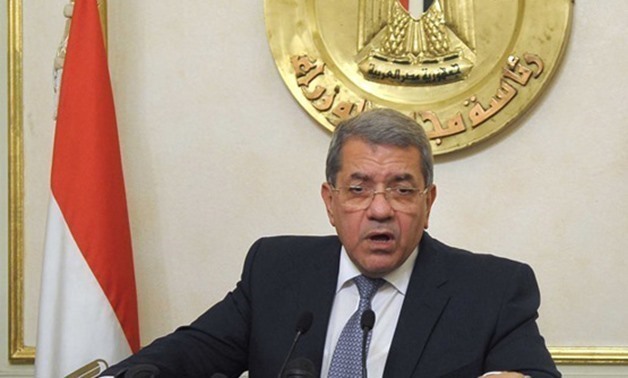
File - Finance Minister Amr El-Garhy
CAIRO – 2 December 2017: Egypt has never failed in repaying its foreign debts on time, Finance Minister Amr el-Garhy told Egypt Today Saturday.
He confirmed on the country’s ability to repay between $14-15 billion during current fiscal year 2017-2018.
Garhy’s remarks came in response to western media reports that claim that Egypt will not be able to pay its debts in 2018.
The minister said that despite the economic challenges that Egypt face during the past seven years, the government had paid all its dues to other countries and international institutions on time.
Cairo has never failed to pay off its foreign debt installments, according to their set schedule, since the 1990s, Garhy added.
Egypt’s foreign debt amounted to nearly $79 billion at the end of fiscal year 2016/2017, ending on 30 July 2017, according to the Central Bank of Egypt (CBE).
Tarek Amer, Governor of the CBE told Egypt Today in late October in Washington that Egypt is committed to repay $13 billion to international institutions by the end of 2018, affirming that the CBE is committed to maintain the country’s foreign reserves at $36 billion.
According to official figures, 37.4 percent of Egypt’s foreign debts are owed to Arab countries ;12.9 percent to United Arab Emirates, 12 percent to Saudi Arabia, 8.3 percent to Kuwait.
The figures further showed that19.2 percent of the debts are owed to major countries of the Paris club, 25.9 percent to international and regional institutions, 4.4 percent to bonds and Sukuk and 13.1 percent to other debtors.
Egypt has embarked on an economic reform program in 2014 that resulted in a notable increase in Egypt’s foreign reserves, which stood at $36.703 billion at the end of October.
“The Egyptian authorities have embarked on an ambitious reform program and have taken decisive measures aimed at restoring macroeconomic stability and sustainable public finances,” the International Monetary Fund (IMF) said in its report on the first review of Egypt’s economic reform program.
The report added the government embarked an IMF-supported program to restore the stability of its finances, promote growth and employment.
The reform program includes flexible exchange rate regime, reducing the budget deficit, energy subsidy reform, higher growth through wide-ranging structural reforms.
Building on the ongoing reform efforts and the restoration of confidence, Egypt has the opportunity to transition to a higher growth trajectory, and increase prosperity for all, by locking in the gains from macroeconomic stabilization and harnessing its full growth potential, the IMF report said.
International credit rating Standard and Poor's (S&P) upgraded in late November Egypt's outlook to positive from stable, while maintaining Egypt’s sovereign credit rating at B-.
The rating agency said Egypt outlook revised to positive on the back of rising reserves and strengthening economic growth.
S&P said that the positive outlook reflects potential upgrade over next year “if Egypt continues to implement reforms to support investment and growth.”
It expected political stability in Egypt to continue under president Abdel Fatah al-Sisi, while not seeing a significant policy changes in run-up to elections in early 2018.

Comments
Leave a Comment